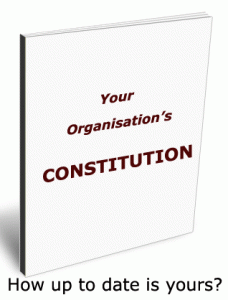When was the last time you reviewed the constitution of your organisation? The constitution is a vital document as it provides the framework and boundaries in relation to how the organisation runs.
Whether you are an unincorporated association, incorporated association, not for profit, charity or an unlisted public company limited by guarantee you need to ensure the rules or constitution are current, up to date and reflect the operations of the organisation.
They will usually detail the powers and obligations of the board as well as the members of the organisation and why the organisation exists.
Some examples of what a constitution may contain include:
- The purpose of your organisation
- Requirements to be a member of the organisation
- How board members are appointed
- The type of sub committees
- How meetings are held and called such as for general, special or annual meetings
- Recording, managing, keeping and access to minutes of meetings.
- The liability of members
- Winding up procedures
These are just a brief summary of some of the issues a constitution may contain as there are so many more that depends on the nature of the organisation.
Furthermore, depending on your legal structure, whether you are a charity or registered for deductible gift recipient status, so you can accept tax deductible donations, there are also a number of legal obligations that you must comply.
For example:
- If you are an incorporated association you need to comply with the relevant State Government legislation.
- If you are unlisted public company limited by guarantee you need to comply with ASIC requirements.
- If you are a registered charity you need to comply with Australian Taxation Office requirements.
As noted at the start, the important issue is that you need to review the constitution of your organisation to ensure it is accurate and up to date. This is not only from an operational perspective but to also ensure your organisation is legally compliant as there are significant penalties if your organisation is in breach of the relevant legislation.

 Posted on 16,Apr |
Posted on 16,Apr |
 Posted by Anne
Posted by Anne 





There are no comments yet